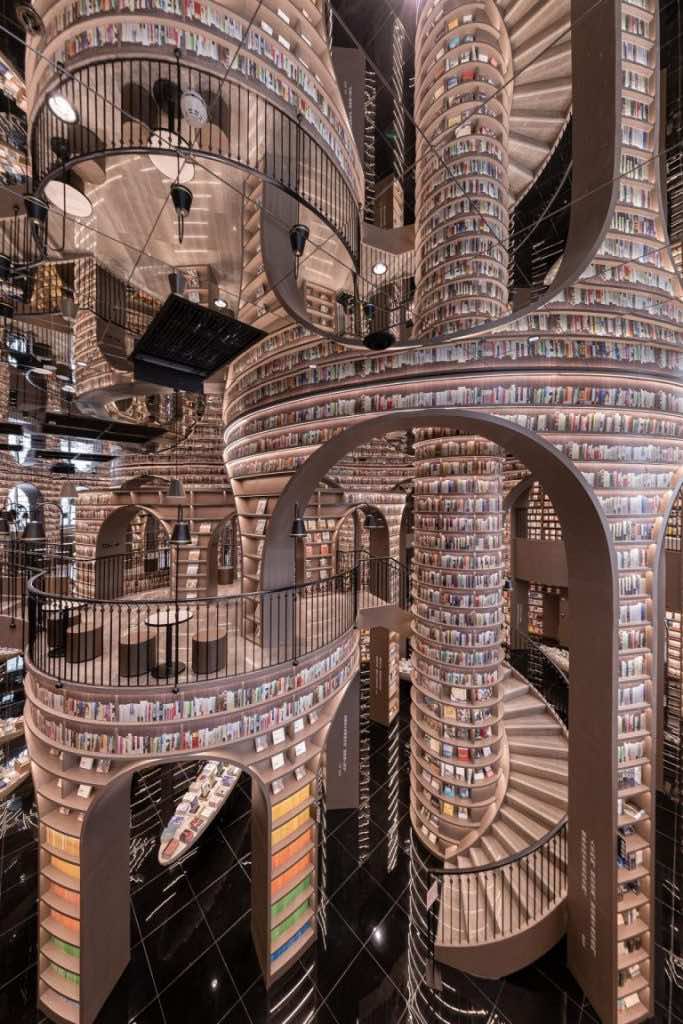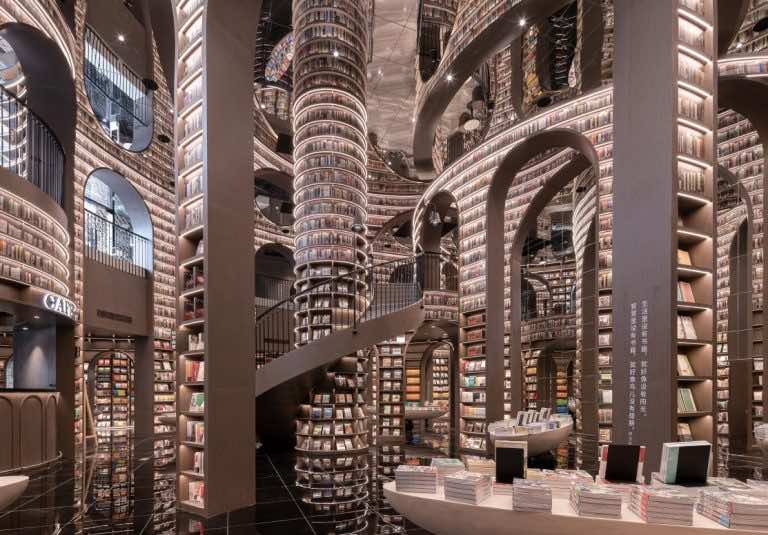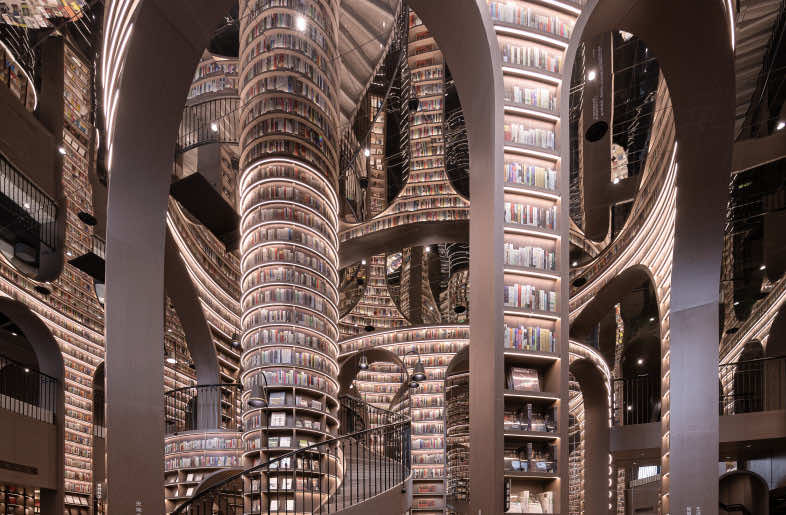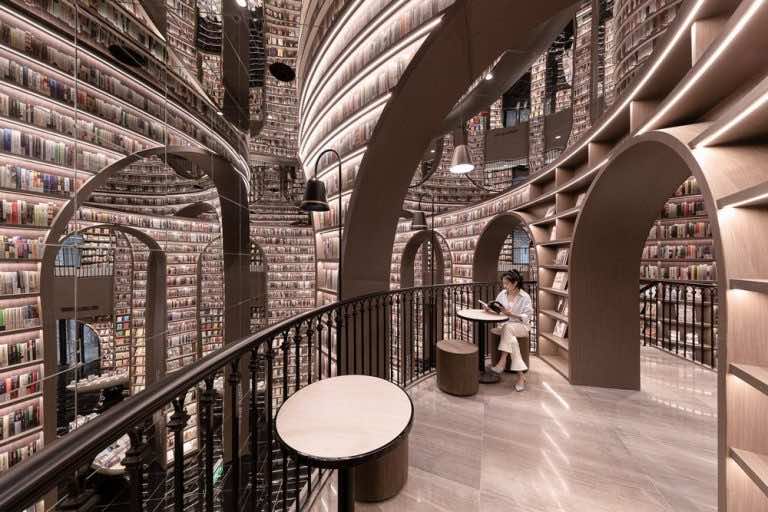Every book reader fantasizes about visiting a reader’s heaven. A place with infinite books and countless staircases leading to uncharted worlds of imagination and knowledge. Dujiangyan Zhongshuge, a bookstore in Dujiangyan, China, is exactly such a place; with its mind-boggling illusion formed by cleverly placed mirrors and shining black tiles, this place is exactly how every reader would have imagined a readers heaven.
Designed by Li Xiang, founder of Shanghai-based architecture studio X+Living, this mesmerizing piece of architecture covers an area of 10,500 square feet. This stunning place flung open its doors for book enthusiasts in the fall of 2020. Using spiraling staircases, curved archways, and cleverly placed mirrors, the creators of this majestic bookstore, with their illusion, have been able to instill a never-ending infinity-like feel in the bookstore. A glimpse at the photos of Dujiangyan Zhongshuge makes the viewers feel as if they see a bookstore from another world. It is mesmerizing, majestic, infinite, and everything the imagination can wander onto.

Chinese bookseller Zhongshuge is famous for its out-of-the-world bookstores, but without a doubt, its latest bookstore was its most ambitious project to date, and this project has put all others to shame with its majesty. It took over a month for Li Xiang to design the infinite paradise. However, the expertise of the architect firm can be gauged by the fact that such an outstanding and grand building was completed in 5 months.

Huge arched walnut bookracks add to the grandeur of the place. An infinite illusion created by the reflecting roof and shining black tiles makes this place stand out. The most outstanding thing about the store is not the fact that such an outstanding idea was conceived but how beautifully it was brought to life. The infinity of the place makes the readers and onlookers wonder as to where the shelves begin and where do they end.

The books ever so smartly extended from floor to the ceiling beautifully imitates an infinity visual effect by displaying the upper shelves with a design of shelved books instead of the actual books.
“If we placed real books on the upper shelves, it’s not only hard for readers to reach them but also difficult for operators to take care of,” Li said. “The store already has a collection of over 80,000 books, so there’s actually no waste of space.”

Light also plays a pivotal role; therefore, each bookshelf is embedded with its own light belt. This not only supplements the unworldly effect but also makes it easier for book lovers to find their own imaginary, fiction, or non-fiction world on the shelves.


